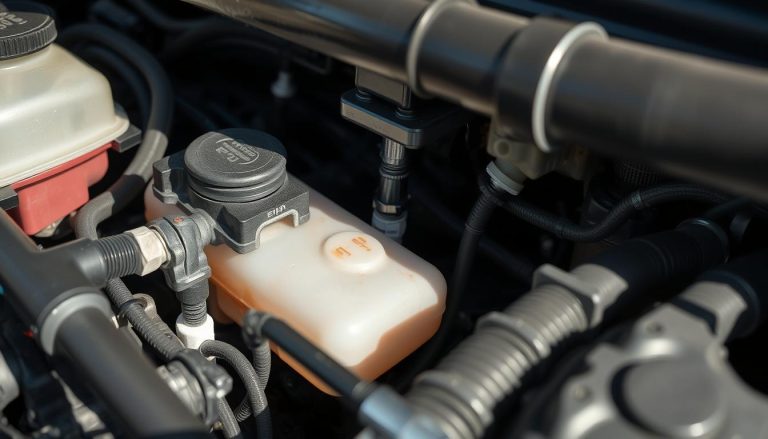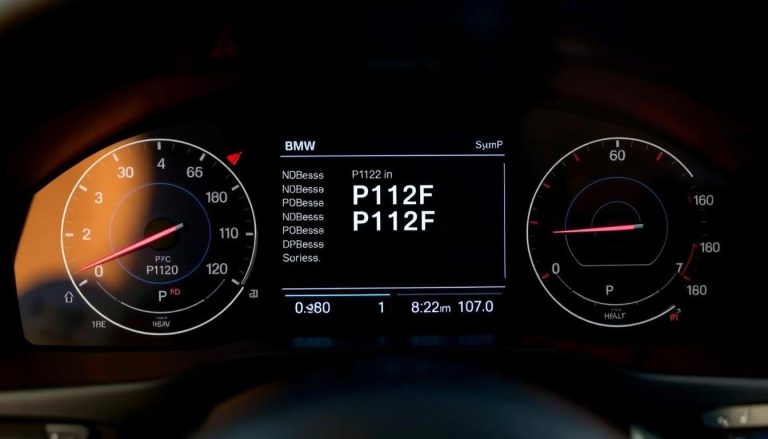Have you ever been cruising down the highway, only to be greeted by that dreaded check engine light? One of the codes that might appear is the P0460 code, which relates specifically to your fuel level sensor. But what does this mean for your vehicle and your wallet?
Understanding this code can save you time and money while keeping your car running smoothly. Let’s dive into everything you need to know about the P0460 code—its causes, symptoms, diagnostics, and how to fix it efficiently!
What does the P0460 code mean?
The P0460 code indicates an issue with the fuel level sensor A circuit. This component is crucial for monitoring how much fuel is present in your tank.
When this code triggers, it typically points to a malfunction in the sensor itself or its wiring. The engine control module (ECM) receives incorrect data from the sensor, leading to inaccurate fuel readings.
This can cause problems like erratic fuel gauge behavior and unreliable distance-to-empty calculations. It’s not just a minor inconvenience; it can affect your driving experience significantly.
Understanding this code helps drivers recognize potential issues before they escalate into major repairs or breakdowns on the road. Being proactive about what the P0460 signifies allows for better vehicle maintenance and safety practices going forward.
What are the common symptoms of a P0460 code?
When your vehicle throws a P0460 code, it often brings along several telltale symptoms:
- Erratic fuel gauge readings. You might see fluctuations in the fuel level indicator, which can be quite confusing.
- Decrease in Distance to Empty mileage
Diminished fuel efficiency. If you notice that you’re filling up more frequently without any other changes in driving habits, this could point to an issue with the sensor. - Malfunction Indicator Lamp (MIL) illuminated
- Difficulty starting your car or stalling during operation.
What are the common causes of a P0460 code?
The P0460 code can arise from several underlying issues :
- A malfunctioning fuel level sensor itself. When this component fails, it can send incorrect readings to your vehicle’s computer.
- Failed FLS Sensor / sensing arm stuck mechanically
- Damaged or corroded wires can disrupt the signal between the sensor and the engine control module (ECM). Loose connections also fall into this category, leading to intermittent faults that trigger the code.
- Short to voltage in the signal circuit to the FLS sensor
- Short to ground in the signal circuit to the FLS sensor
- A faulty ECM might be at fault. Although less common, software issues in your car’s computer system could misinterpret data from the fuel level sensor.
What are the diagnostic steps for a P0460 code?
To diagnose a P0460 code, start with a visual inspection of the fuel level sensor and its wiring. Look for damaged or corroded connectors that might lead to poor signal transmission.
Next, use an OBD-II scanner to retrieve any additional trouble codes. This helps in understanding if there are related issues affecting the system.
Check the voltage at the fuel level sensor connector with a multimeter. Ensure it falls within specified manufacturer ranges.
If everything appears intact, perform a continuity test on the wiring harness leading to the engine control module (ECM). Any breaks in continuity can trigger this code.
Consider replacing faulty components like the fuel level sensor itself if previous steps don’t reveal any obvious problems. Each of these steps will guide you closer to identifying and addressing this specific issue effectively.
How serious Is the P0460 Code? Can I continue driving with the P0460 code?
The P0460 code is a warning sign that something’s amiss with your fuel level sensor. While it might not immediately render your vehicle inoperable, ignoring it can lead to bigger issues down the line.
You may experience erratic fuel gauge readings or even run out of gas unexpectedly. This unpredictability can be particularly dangerous on long trips or busy highways where stopping isn’t an option.
Continuing to drive with the P0460 code isn’t advisable. It affects how you monitor fuel levels, increasing the risk of running low without warning. If you’re on a tight schedule, it’s tempting to push through. However, addressing this issue sooner rather than later will save you from more extensive and costly repairs later on. Prioritizing diagnostics ensures that your vehicle remains safe and reliable for everyday use.
What are the repair solutions for a P0460 – Fuel Level Sensor A Circuit ?
Repairing the P0460 code often begins with a thorough inspection of the fuel level sensor. If you find damaged wiring or corroded connectors, replacing these components can resolve the issue.
If the sensor itself is faulty, it will need to be replaced. This may require draining some fuel from the tank for easier access.
In some cases, reprogramming or resetting your vehicle’s engine control module (ECM) might also be necessary after making repairs. Always ensure that any new parts are compatible with your specific make and model.
Professional diagnostics help pinpoint issues quickly. Sometimes, what seems like a simple fix could stem from more complex electrical problems in the circuit.
How long and How much does it cost to diagnose and repair a P0460 code?
Diagnosing a P0460 code typically takes one to two hours at a professional repair shop. The time spent often depends on the technician’s experience and the complexity of the vehicle’s system.
Labor costs can range from $75 to $150 per hour, leading to an average diagnostic fee between $100 and $300. This amount may vary based on location and specific service charges.
Repair costs will depend largely on what is found during diagnosis. If it’s just a faulty fuel level sensor, parts might cost anywhere from $50 to $200. However, if wiring or other components need attention, you could see expenses rise significantly.
Always ask for a detailed estimate before any work begins. Getting multiple quotes can help ensure you’re getting fair pricing for your necessary repairs.
How can I avoid a P0460 code?
Regular maintenance is your best defense against a P0460 code. Keeping an eye on your fuel system components can help catch issues early. Routine inspections of the fuel level sensor and wiring connections ensure they remain intact.
Using high-quality fuels also makes a difference. Poor-quality gasoline can affect performance and lead to sensor malfunctions over time.
Monitor for warning signs, such as fluctuating fuel readings or dashboard alerts, to address problems before they escalate into bigger issues.
Keeping your vehicle’s software updated is essential too. Manufacturers often release updates that fine-tune how sensors operate, improving accuracy and reliability.
If you notice any strange behavior regarding the fuel gauge or other related systems, don’t brush it off; investigate promptly to maintain optimal function in your vehicle’s systems.
What happens if you ignore a P0460 code?
Ignoring a P0460 code can lead to several complications. The fuel level sensor is crucial for monitoring your vehicle’s fuel levels accurately. If this system fails, you could experience erratic readings on your dashboard.
This might leave you stranded with an empty tank or cause unnecessary refueling stops. Fuel economy may also suffer, leading to increased expenses over time as the engine runs inefficiently.
Moreover, neglecting this issue could trigger more serious problems in related systems. Other components linked to the fuel system might begin to fail due to incorrect data being sent from the sensor.
In some cases, continued driving may activate additional trouble codes. This makes diagnosis and repair even more complex and costly down the line. A seemingly minor issue like a faulty sensor can snowball into bigger repairs if left unaddressed.
Is the P0460 code specific to certain car makes or models?
The P0460 code is not limited to specific car makes or models. It can appear in a variety of vehicles, ranging from compact cars to larger trucks and SUVs.
Many manufacturers use similar fuel level sensor systems, making this code common across different brands. However, the exact triggers for the P0460 might vary slightly based on design and technology.
Some vehicle owners may notice it more frequently in older models that rely on less sophisticated electronic components. Newer vehicles often have advanced diagnostics that can catch related issues earlier.
While certain brands like Ford and Chevrolet may report higher instances of this trouble code, it’s essential to remember that any vehicle with an electronic fuel system could potentially experience a P0460 error.
What other codes may be related to P0460?
When dealing with the P0460 code, it’s essential to be aware of other related trouble codes that might arise. These can provide additional context for diagnosing issues within your vehicle’s fuel system.
Codes such as P0461 and P0462 often accompany the P0460. The former indicates an inconsistency in the fuel level signal, while the latter suggests a low signal from the sensor. Additionally, you may encounter codes like P0420 or even those associated with broader performance issues, indicating potential complications elsewhere in your engine management system.
Understanding these related codes can help you pinpoint problems more effectively and determine whether they are interconnected or stand-alone issues. Always consult a professional mechanic if you’re uncertain about any diagnostic trouble codes; proper assessment is key to keeping your vehicle running smoothly.


